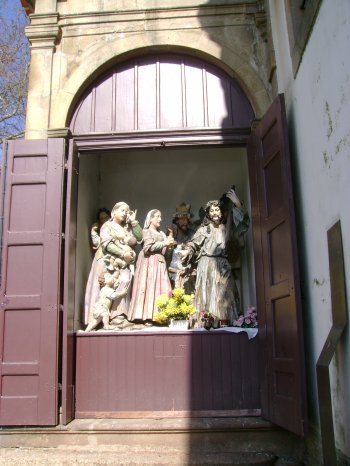Explore the best places
Monuments in Guimarães
Castelo de Guimarães
- heritage
Rua Conde Dom Henrique
4800-412, Guimarães
In the 10th century, the Countess Mumadona had a monastery built on her estate. The fact that it was the target of intense Moorish attacks meant that a fortress was built to protect the monks and the Christian community. Thus was born the Castle of Guimarães. After the birth of Condado Portucalense, it became inhabited by Count Dom Henrique and Dona Teresa, who had major works carried out on this monument. Between the 13th and 15th century, several kings contributed to the improvement of the Castle, after which it was abandoned, finding itself very degraded until the 20th century, when …
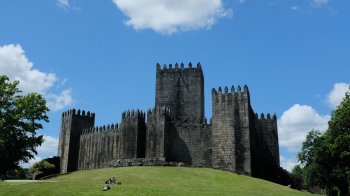
Centro Histórico de Guimarães
- heritage
Guimarães
4810, Guimarães
Classified as a UNESCO World Heritage Site, the historic center of Guimarães is a clear example of the preservation of a medieval urban core, in what is now a modern city. Intrinsically linked to the emergence of nationality in the twelfth century, the city is formed by a diverse set of buildings. In the center, you can easily see the bourgeois and noble houses from the 15th to the 19th century and the urban houses with smooth facades built during the 17th and 18th centuries. Of special beauty are the 19th century houses with a Pombaline style and houses covered …
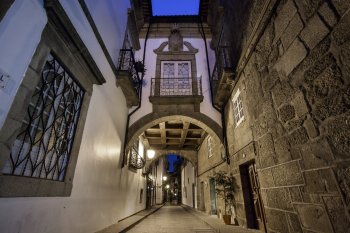
Capela de Nossa Senhora da Conceição
- heritage
Rua Nossa Senhora da Conceição, 10
4800, Guimarães
Small temple with a curved pediment crowned by pinnacles. The entry is preceded by a porch with columns of granite. Inside, stand in the chancel, the altarpiece, the coverage of the caissons talha tilled and walls tiled flooring historian.
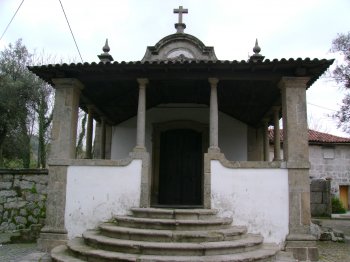
Igreja de São Miguel do Castelo
- heritage
Rua Conde Dom Henrique, 3
4800-412, Guimarães
This Romanic church has a perfectly volte doorway and a rectangular main chapel, probably built by the Count Dom Henrique. This Monument has a rather high symbolism not only for its historical connection to the period in which the Nationality was founded, but also because traditionally here Dom Afonso Henriques was baptised. The main façade includes a doorway with two archivolts and a flat tympanum. On the inside there are some warrior graves that were connected to the Nationality foundation.
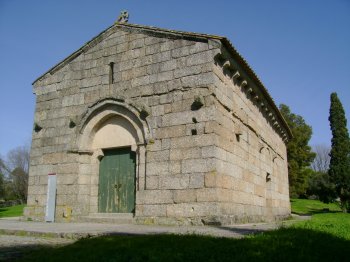
Igreja de Santa Cristina de Serzedelo
- heritage
Largo do Mosteiro, 9
4765-497, Cerzedelo
This is a Romanic temple from the 12th century that used to belong to the Knights templar and later to the hermits of Saint Augustine, afterwards passing to the Order of Christ. It stands out the main portico and on the yard, some tombstones. The ceiling on the main chapel is from the 18th century.
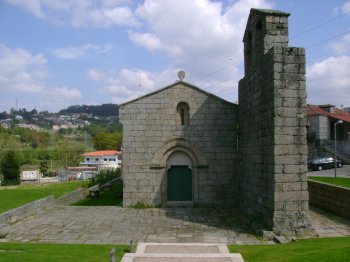
Igreja e Claustro de São Domingos
- heritage
Rua Doutor Avelino da Silva Guimarães
4810-426, Guimarães
This is a Gothic temple from the 14th century, which baroque door and the main chapel enlargement were the result of several reforms performed during the 18th century. On the interior it stands out the main altarpiece with neoclassic influence dated from the ends of the 18th century, the rocaille organ and a seventeen hundreds seating. It used to make part of São Domingos Convent, which was destroyed in the end of the 19th century maintaining the Gothic cloister from the 14th century, classified as a National Monument and which is integrated on the Archaeology Museum from the Sociedade Martins …
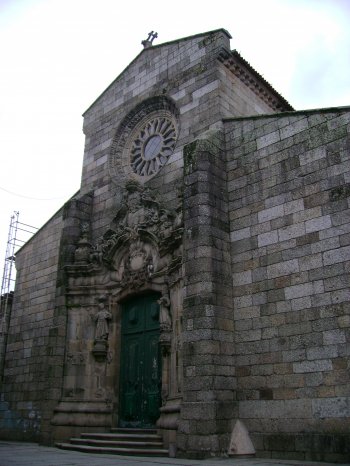
Igreja de Santa Maria de Corvite
- heritage
Largo da Igreja de Santa Maria, 2
4805-268, Corvite
16th century Church of longitudinal plant, consisting of nave and chancel rectangular. Primary archaizing portal highlights of broken bow.
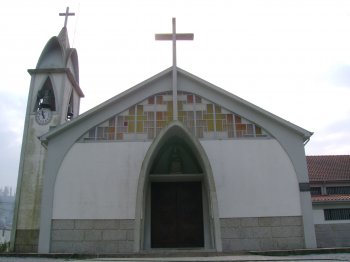
Igreja Paroquial de Serzedo
- heritage
Rua de São Miguel, 823
4810-858, Cerzedo
Medieval church remodelled in the 20th century, when the chancel was enlarged and side chapels were built and a sacristy. The main façade is topped by a bell tower with ogive portal.
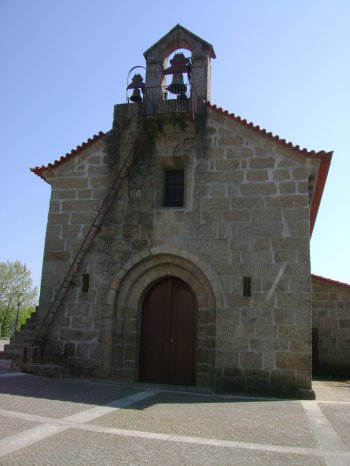
Igreja de Nossa Senhora da Consolação e Santos Passos
- heritage
Largo de São Brás, 42
4810-446, Guimarães
Church dating from the 18TH century, designed by the architect André Soares, crowned by two towers built in the mid-nineteenth century. The staircase balustrade and the altarpiece of the main Chapel, dating from the late 18th century, classic style.
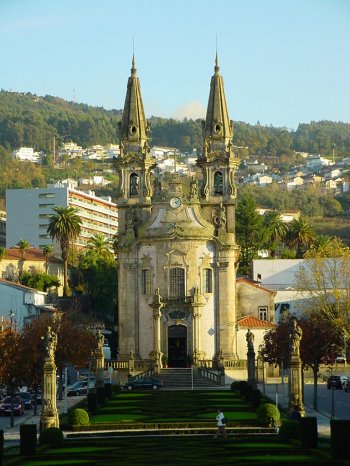
Capela dos Passos da Paixão de Cristo
- heritage
Largo Martins Sarmento, 57
4800-432, Guimarães
This set of steps, or stations of the religious life, were originally seven when they were built in 1727. However, they were later transferred or removed, leaving only five: Step from Largo do Carmo, Rua de Santa Maria step, Step Largo João Franco, Step of the Senhora da Guia and Step the fair field.
